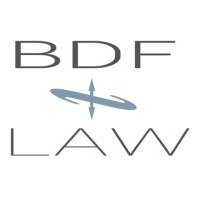Best Employment & Labor Lawyers in Launceston
Share your needs with us, get contacted by law firms.
Free. Takes 2 min.
List of the best lawyers in Launceston, Australia
Australia Employment & Labor Legal Articles
Browse our 1 legal article about Employment & Labor in Australia written by expert lawyers.
- Fired Without Warning in Australia: Unfair Dismissal Guide
- Most Australian workplaces are covered by the Fair Work Act 2009 (Cth), National Employment Standards (NES) and a modern award or enterprise agreement that set minimum pay and conditions. Strict deadlines apply: unfair dismissal and most general protections dismissal claims must be lodged with the Fair Work Commission within 21... Read more →
About Employment & Labor Law in Launceston, Australia
Employment and labor law in Launceston, Australia, encompasses a wide range of regulations and legislation designed to protect both employers and employees. The laws ensure fair practices in the workplace, covering areas such as employment contracts, wages, working conditions, workplace safety, and discrimination. This legal framework is largely governed by the Fair Work Act 2009 at the federal level, while local laws and regulations may provide additional context for businesses and individuals operating in Launceston. Understanding these laws is crucial for both employers and employees to ensure compliance and protect their rights.
Why You May Need a Lawyer
There are several situations where individuals or businesses may require legal assistance in employment and labor matters in Launceston. These include issues such as unfair dismissal, workplace discrimination or harassment, disputes over employment contracts, wage theft, and workers' compensation claims. Employers may also need legal guidance for drafting contracts, implementing workplace policies in compliance with labor laws, or managing disputes with employees. A lawyer specializing in employment and labor law can provide invaluable assistance to navigate these complex issues effectively.
Local Laws Overview
Key aspects of local laws in Launceston relevant to employment and labor include the adherence to minimum wage standards, compliance with occupational health and safety regulations, and the enforcement of anti-discrimination laws. Employment contracts must meet the National Employment Standards (NES), which cover essential provisions such as maximum weekly hours, parental leave, and annual leave. The Fair Work Ombudsman and the Tasmanian Industrial Commission are critical bodies that oversee the implementation and resolution of employment laws in Launceston.
Frequently Asked Questions
What are my rights if I believe I have been unfairly dismissed?
If you believe you have been unfairly dismissed, you can file a claim with the Fair Work Commission. It's important to act quickly, as there is typically a 21-day period from the date of dismissal to make an application. Legal advice can help in building a strong case.
How do I resolve a workplace dispute with my employer?
Initially, attempt to resolve the dispute internally through your human resources department or by discussing the matter directly with your employer. If unresolved, you can seek mediation services through the Fair Work Commission or consult a lawyer for potential legal action.
What protections are there against workplace discrimination?
The Fair Work Act alongside the Tasmanian Anti-Discrimination Act 1998 provides protections against workplace discrimination based on factors such as age, race, gender, and disability. If you experience discrimination, a complaint can be made to the Anti-Discrimination Commissioner in Tasmania.
What constitutes as wage theft, and how can I address it?
Wage theft is when an employer fails to pay their employees the legal minimum wage, overtime rates, or entitlements. If you suspect wage theft, gather evidence and reach out to the Fair Work Ombudsman for assistance in recovering owed wages.
Can I request flexible working arrangements?
Under the National Employment Standards, eligible employees have the right to request flexible working arrangements. Reasons may include caring for children, health conditions, or family responsibilities. Employers must provide a valid reason if denying such requests.
What are the occupational health and safety obligations for employers?
Employers must provide a safe working environment, adhering to the Work Health and Safety Act 2012 (Tasmania). This involves risk assessments, employee training, and maintaining safety standards. Non-compliance can lead to penalties and claims by affected employees.
How does workers' compensation work in Launceston?
Workers' compensation is a form of insurance providing wage replacement and medical benefits to employees injured at work. Employers must hold workers' compensation insurance, and employees should report workplace injuries immediately to claim benefits.
Are there specific laws regarding casual employment?
Casual employees are entitled to certain rights, including a higher base rate of pay (casual loading) to reflect the lack of benefits such as paid leave. Recent changes also allow casuals the right to request permanent employment after a specific period.
How can I ensure my employment contract is legally compliant?
Consulting with a lawyer or a legal advisor can help ensure your employment contract complies with all relevant laws, including NES and any industry-specific awards or agreements. This prevents future disputes and protects your interests.
Where can I find more information on labor laws?
The Fair Work Ombudsman’s website and the Tasmanian Government's Department of Justice provide comprehensive resources and guidance on labor laws, offering information on rights, obligations, and the resolution of disputes.
Additional Resources
For further assistance and information, consider reaching out to the following resources:
- Fair Work Ombudsman
- Tasmanian Industrial Commission
- Anti-Discrimination Commissioner Tasmania
- WorkSafe Tasmania
- Community Legal Centres Tasmania
Next Steps
If you need legal assistance in employment and labor, the first step is to gather all relevant documents and information related to your issue. Consider contacting a local law firm specializing in employment law for a consultation to discuss your situation. You may also reach out to relevant government bodies or community legal centers for preliminary guidance. Taking proactive steps can help protect your rights and achieve the most favorable outcome.
Lawzana helps you find the best lawyers and law firms in Launceston through a curated and pre-screened list of qualified legal professionals. Our platform offers rankings and detailed profiles of attorneys and law firms, allowing you to compare based on practice areas, including Employment & Labor, experience, and client feedback.
Each profile includes a description of the firm's areas of practice, client reviews, team members and partners, year of establishment, spoken languages, office locations, contact information, social media presence, and any published articles or resources. Most firms on our platform speak English and are experienced in both local and international legal matters.
Get a quote from top-rated law firms in Launceston, Australia — quickly, securely, and without unnecessary hassle.
Disclaimer:
The information provided on this page is for general informational purposes only and does not constitute legal advice. While we strive to ensure the accuracy and relevance of the content, legal information may change over time, and interpretations of the law can vary. You should always consult with a qualified legal professional for advice specific to your situation.
We disclaim all liability for actions taken or not taken based on the content of this page. If you believe any information is incorrect or outdated, please contact us, and we will review and update it where appropriate.
Browse employment & labor law firms by service in Launceston, Australia
Launceston, Australia Attorneys in related practice areas.









